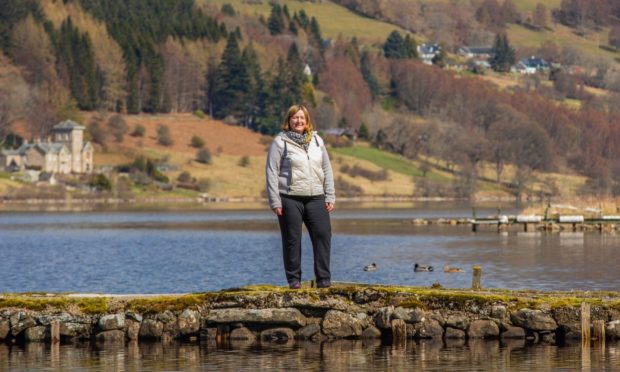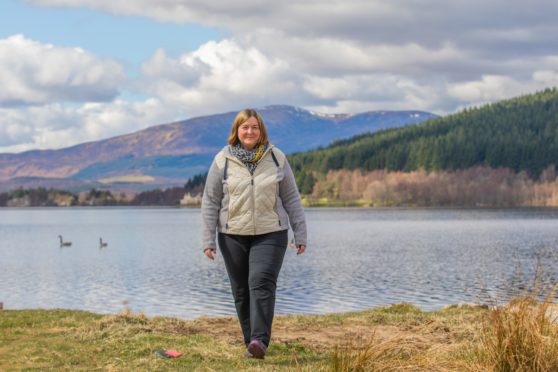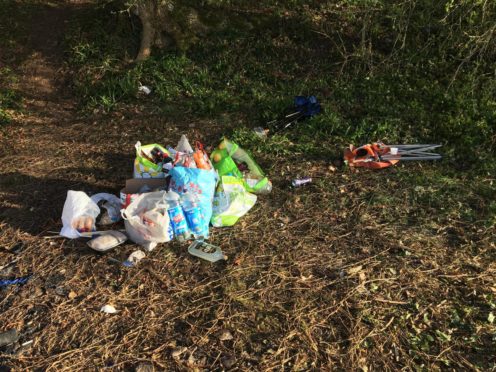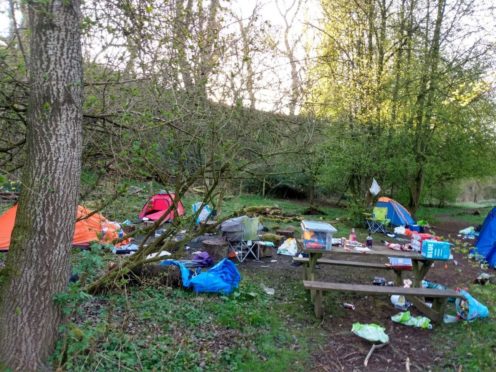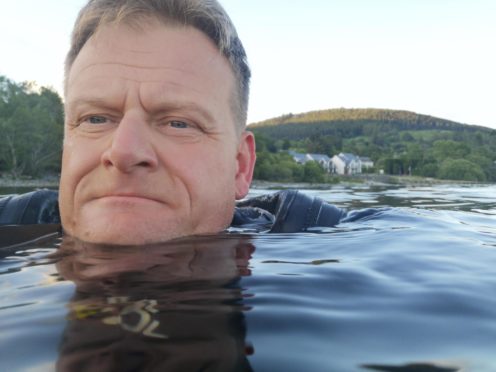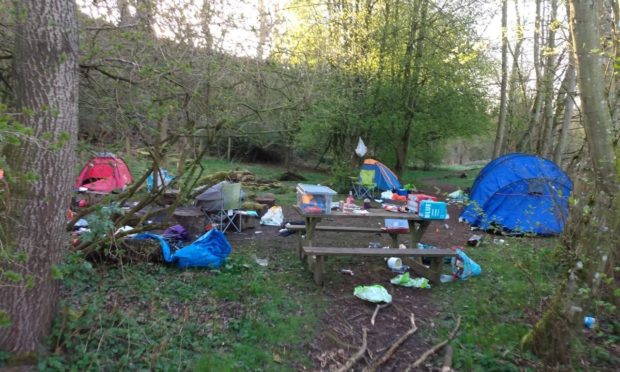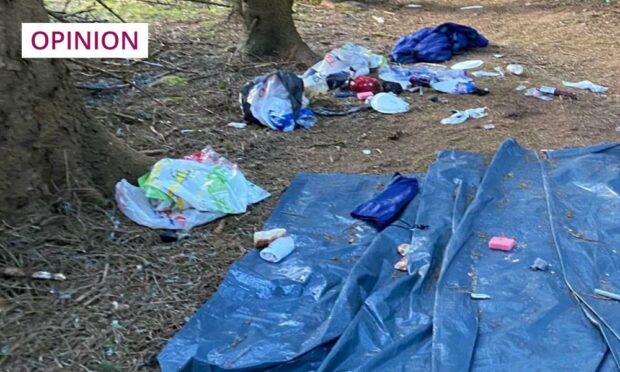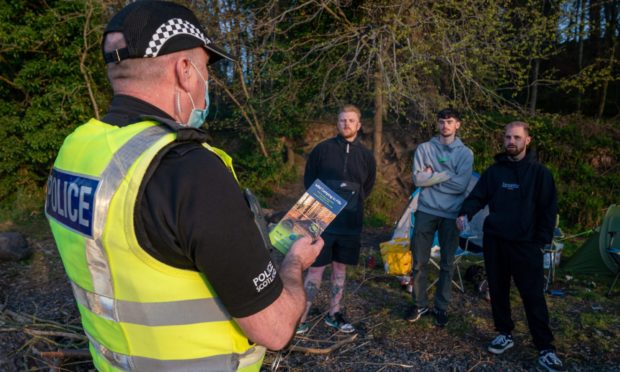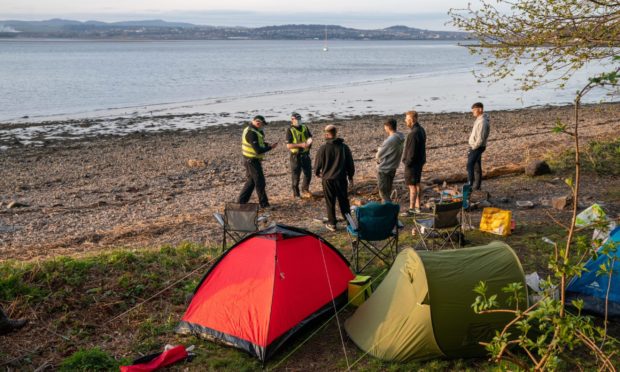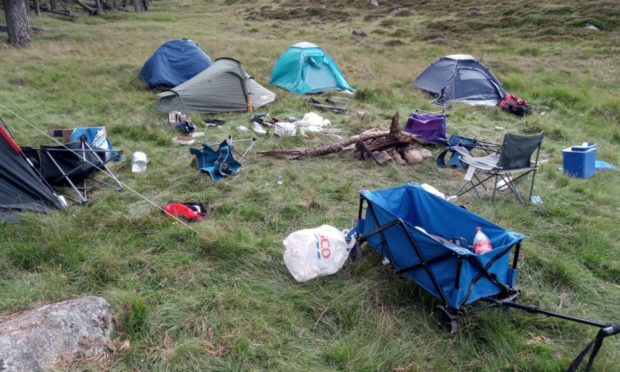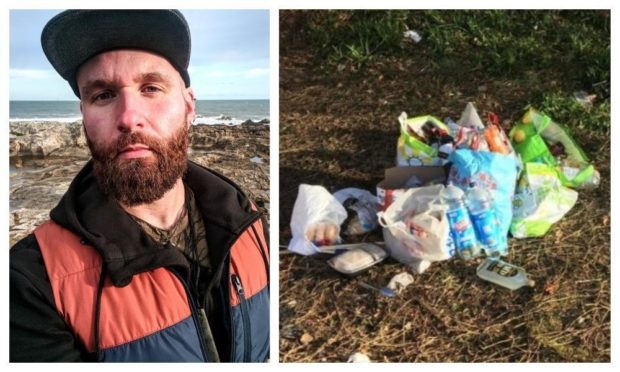The “dirty camping” explosion has left rural communities across Tayside and Fife “dreading” spring and summer.
Anti-social campers have already vandalised an ancient abbey in Fife’s Balmerino on Easter Weekend and trashed land close to a 200-year-old-mill in Angus.
Residents near Loch Tummel and Loch Tay in Highland Perthshire are “bracing” themselves after cleaning up dumped camping equipment, drugs paraphernalia and human waste for most of last year.
The end of government coronavirus orders to ‘stay local’ on Friday, April 16 has left many frightened for their once quiet family lives in Tayside and Fife’s most scenic locations.
‘I feel dread’
Loch Tummel local Jennifer Macintyre is one resident who has learned to fear a good weather forecast.
“I feel dread. As soon as there is a nice weekend forecast I just dread how many people are suddenly going to camp and leave a mess behind,” she said.
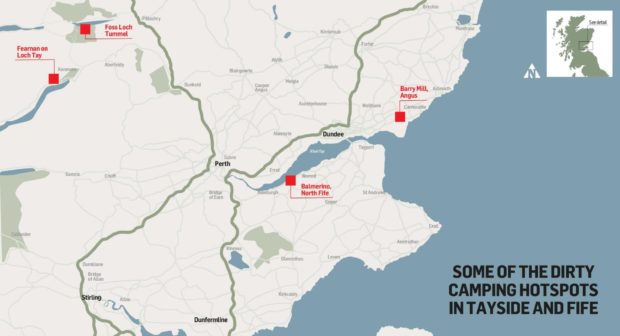
Jennifer is one of the hundreds, perhaps thousands, of people living in some of Tayside and Fife’s most beautiful spots who have seen ‘dirty camping’ blight their lives.
Coined last year, ‘dirty camping’ is a term for overnight campers who leave a trail of destruction when their party ends.
And local residents are left to pick up their mess.
Loch Tummel ‘destroyed’
Jennifer, who lives on the banks of Loch Tummel in Highland Perthshire, spent “every week” last year cleaning up abandoned campsites.
“We were clearing away tents, sleeping bags, blankets, disposable barbeques, countless beer bottles, drugs paraphernalia. You name it.”
She and a group of volunteers moved in when the ‘dirty campers’ had moved out.
“The reason we live here is we enjoy the countryside and the beauty of the area. So to see that being destroyed, and to see all the rubbish being left around, is disheartening.”
Ancient Fife abbey ‘desecrated’ on Easter Weekend
Jennifer is far from alone.
In Balmerino, a picturesque Fife hamlet on the banks of the Tay, the problem has already reached crisis point.
This Easter weekend a group of 30 or 40 people descended on the village. They brought an electricity generator to power their night under the stars.
“All of the young people kept coming and they set up three quite big campsites along the beach,” said one long-term Balmerino resident, who did not wish to give her name for fear of potential reprisals.
Neighbours called the police to tackle the noise.
“The police van arrived. They went and spoke to them. And the police left and they just turned the music back on again.
“People started arriving after midnight in taxis. They were wandering around people’s garden asking where the party was.”
‘Kicked a hole in the door’
Some of the group “dirty camping” went on to break fencing, make a hole in the parlour door of the Abbot’s house in the abbey and dislodge several stones from the abbey ruins.
“They must have been looking for somewhere to stay. They had gone into the abbey. When they couldn’t get into the parlour they actually kicked a hole in the door,” the woman added.
“It was Easter weekend. Holy of holies. And it’s the first time I’ve seen vandalism and desecration in the abbey.”
It’s the first time I’ve seen vandalism and desecration in the abbey.”
The local farmer drove down to the site after with a bucket fixed to his tractor. The villagers then filled it to the brim with abandoned tents, chairs, bottles and the rest.
National Trust for Scotland manager Stuart Maxwell confirmed the damage to their property and appealed for anyone with information to go to the police.
“We appreciate that everyone is bored and fed up with lockdown, but there is absolutely no excuse for the utterly stupid, selfish and thoughtless acts of vandalism perpetrated on an important historic site,” he added.
‘He had had enough’
Dad Steve Burke discovered a mess of tents, broken bottles and other waste while walking with his daughters near Barry Mill outside Carnoustie.
The campers had trashed the Angus beauty spot over two nights, vandalising the grounds of the historic 200-year-old mill, setting fire to camping equipment and using parts of the site as a makeshift toilet.
“We had just gone out for a walk with the girls. Me and one of my friends volunteered to go and clean up the mess and we met a third person there.
“He said he had tidied up the mess on previous occasions, but he wasn’t prepared to tidy up again because he had had enough of it.”
Steve said the clean-up job after the “dirty camping” left him disgusted. He helped pack the waste into “half a dozen” black bin bags.
“It was the total lack of respect for nature and wildlife and the fact it is a beautiful site,” he said.
“They had made no attempt to clean up the mess and it’s happening all across Scotland at the moment.”
‘They are not wild campers – they are dirty campers’
Aberfeldy-born businessman Stuart Brain, with family and friends, cleaned up 10 ‘dirty campsites’ last year.
The incidents happened around Fearnan at the east end of Loch Tay.
It is a measure of the problem that he does not consider himself badly affected, compared to what some of his neighbours have had to deal with.
The regular loch user said: “Some of them are as brazen to have their business numbers emblazoned all the way down the sides of their vehicles.
“People seem to want to persist in burning cans. They left bits of tent, camping beds and chairs. I have more tent pegs than I could use in two lifetimes.”
Stuart is one of many bracing himself for the season to come.
“It can be a bit soul destroying.
“They are not wild campers – they are dirty campers.”
“There are people who will moan about it. Then you will get the people who will get on and do it [clean up the mess]. I was in the latter category.
“It just a case of: if I don’t do this, then who the hell does?”
